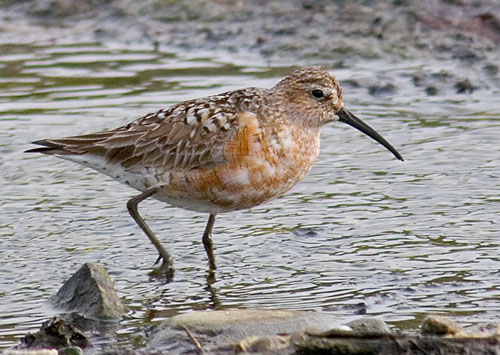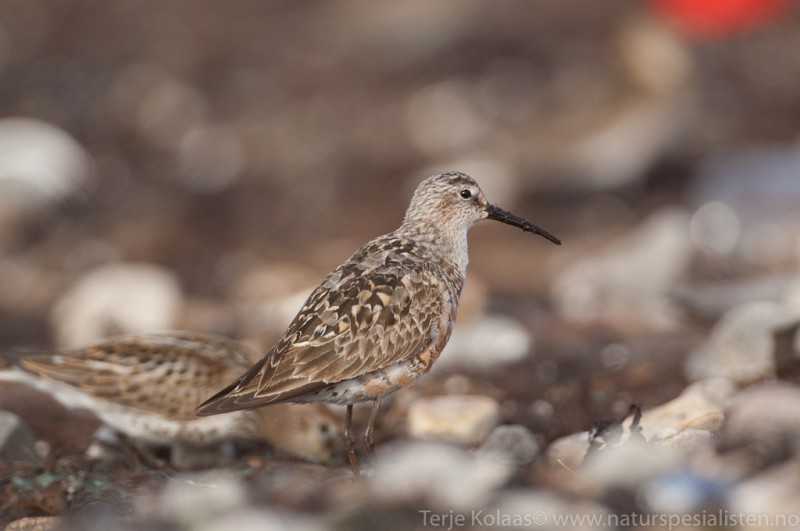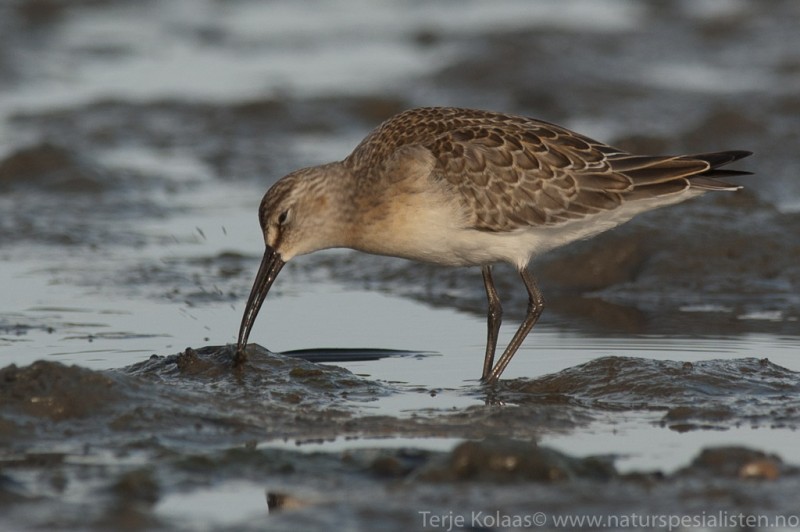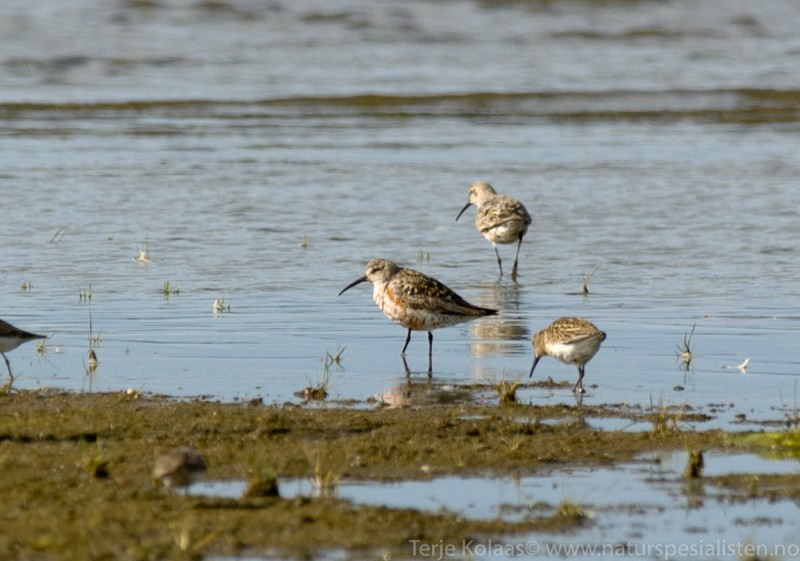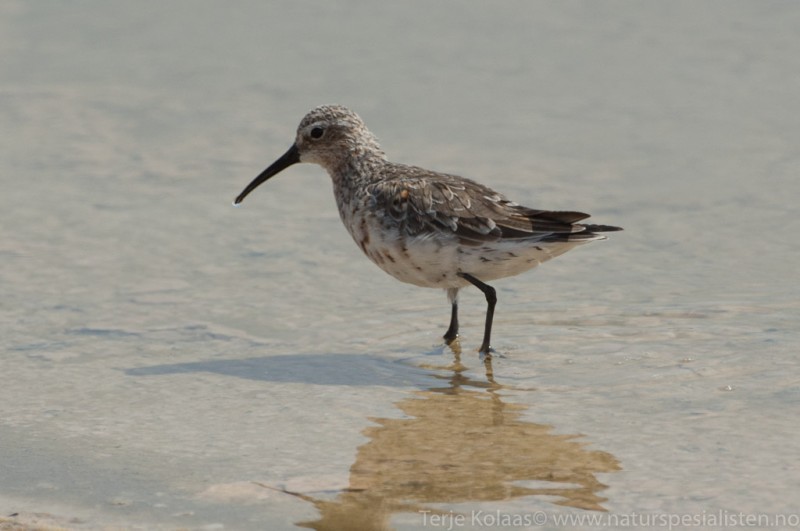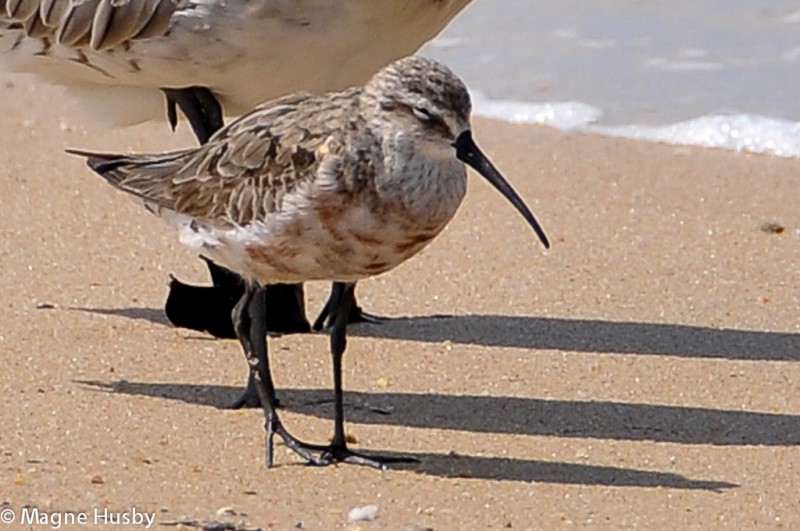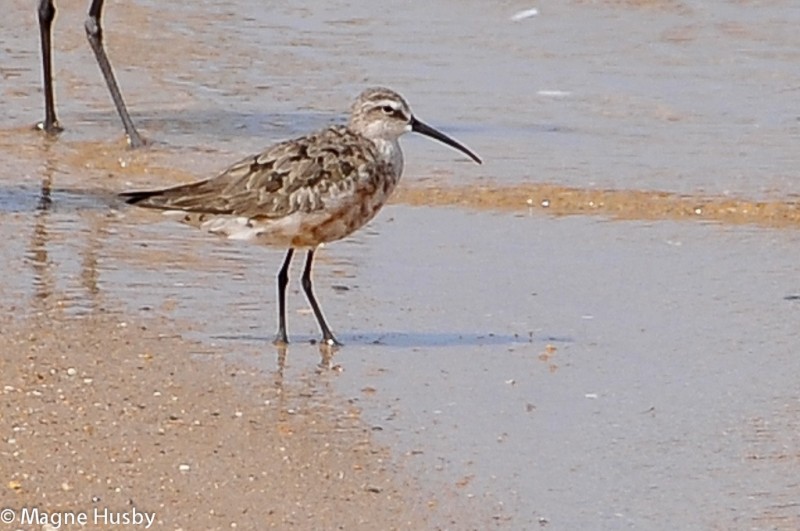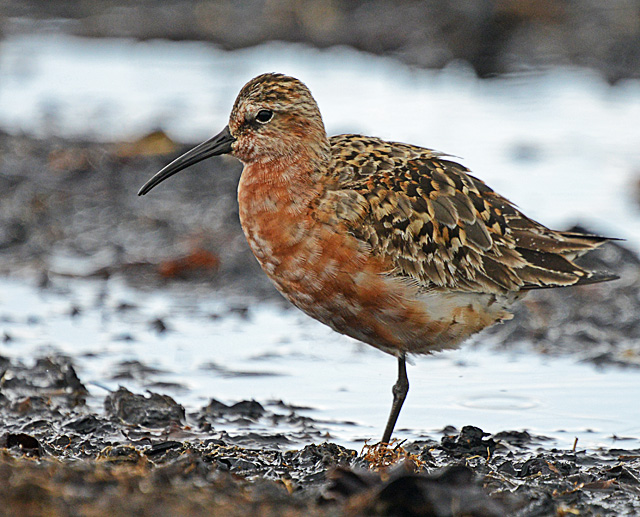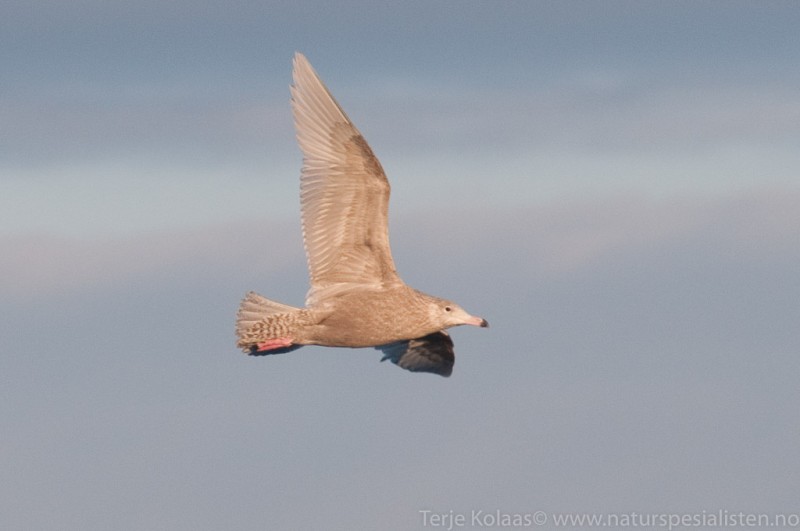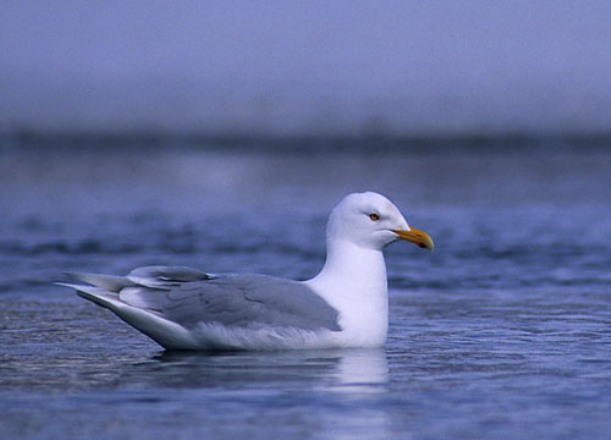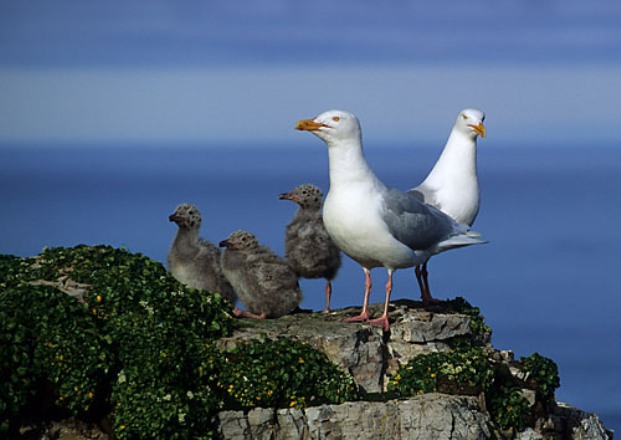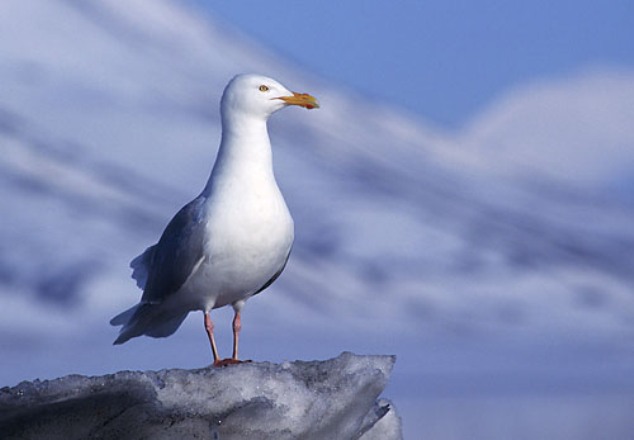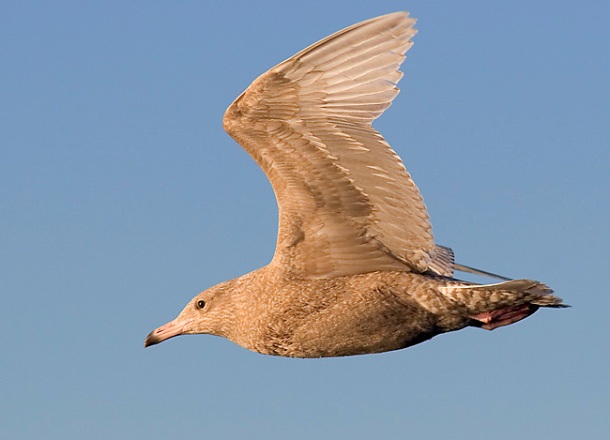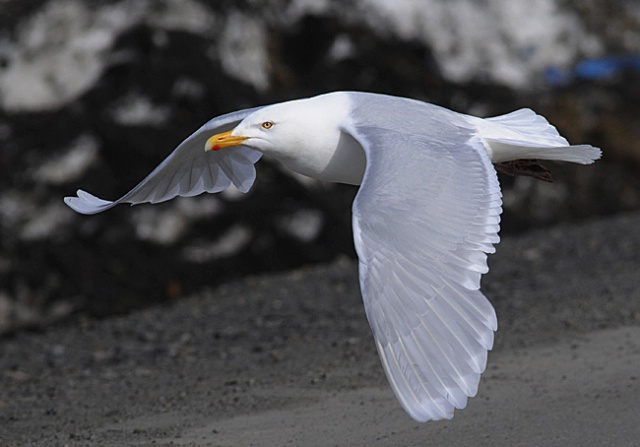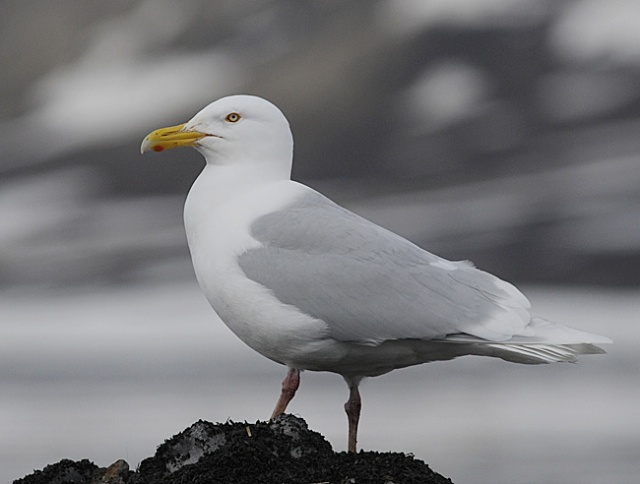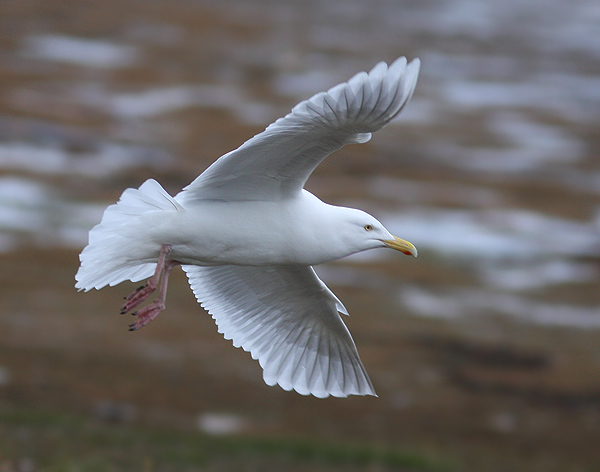Curlew Sandpiper (Calidris ferruginea)
Glaucous Gull (Larus hyperboreus)
Summer plumage: Warm, rufous brown below like Knot, but much smaller. Bill curved and much longer, and appearance more long-legged. Winter and juvenile plumage grey above and pale below. Differs from Dunlin in slightly longer legs and bill, more pronounced supercilium, no black patches on belly (some rufous summer feathers may show when moulting) and more upright stance. Juveniles with buff-pinkish tone to breast, and scaly upperparts. Always distinct in all plumages when flying, due to bright white and crescent-shaped rump-patch.
Sound:Flight call a soft, ringing and rolling "krrrrrt, with variations. Lacks the hoarse, nasal quality of similar call by Dunlin.
Contact call:
Distribution:
Wikipedia: map (se also Xeno-canto below)
Ecology:Birdlife ecology
Links:
Observation.org Latest observations
Image search Flickr NB! May give other species
CCCC-photo:Agustín Povedano, Licence,Link.
CC-photo:Ian N. White, Licence,Link.
Sounds:Creative Commons,www.xeno-canto.org ,Albert Lastukhin,http://creativecommons.org/licenses/by-nc-sa/4.0/
All white wingtips like Iceland Gull. The following characters applies to all ages: Told apart from Iceland Gull by angular head profile, proportionally shorter wings and long, heavy bill. Bill longer than half the length of head, and shows prominent hook. Primaries extends just about past tail in sitting birds, and the whole rear of the bird seem heavier. Eye smaller than in Iceland Gull, with a stern expression. Comparison with nearby Herring Gulls fruitful. Iceland Gull often smaller than Herring Gull, and less heavy, while Glaucous Gull usually larger. Impression reinforced by Iceland's agile maneuvering.
Sound:Like Herring Gull.
Call:
Distribution:
Wikipedia: map (se also Xeno-canto below)
Ecology:Birdlife ecology
Links:
Observation.org Latest observations
Image search Flickr NB! May give other species
CC
 English
English Albanian
Albanian
 Armenian
Armenian
 Bulgarian
Bulgarian
 Catalan
Catalan
 Croatian
Croatian
 Czech
Czech
 Danish
Danish
 Dutch
Dutch
 Finnish
Finnish
 French
French
 Georgian
Georgian
 German
German
 Greek
Greek
 Hungarian
Hungarian
 Italian
Italian
 Latvian
Latvian
 Lithuanian
Lithuanian
 Macedonian
Macedonian
 Norwegian
Norwegian
 Polish
Polish
 Portuguese
Portuguese
 Romanian
Romanian
 Russian
Russian
 Sami : Lule sami
Sami : Lule sami
 Sami : North sami
Sami : North sami
 Sami : South sami
Sami : South sami
 Scientific names
Scientific names
 Serbian
Serbian
 Spanish
Spanish
 Swedish
Swedish
 Ukrainian
Ukrainian


